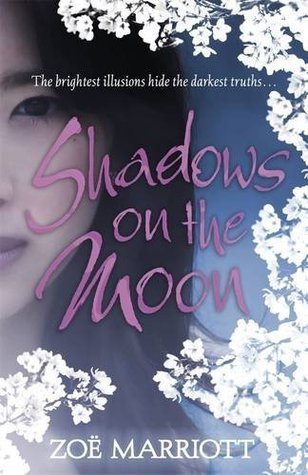
Lonely Castle in the Mirror
Book Description
Trapped in a world where isolation reigns, a group of misfit teens discovers a mystical mirror that leads them to a stunning castle—and a chance at friendship and freedom. But an ominous darkness looms, threatening to tear them apart as secrets unravel and fears surface. With each visit, their bond grows stronger, yet the chilling stakes rise higher. As the line between fantasy and reality blurs, they must confront their deepest vulnerabilities, risking everything to break free. Will they find the courage to challenge the shadows in their hearts, or will the castle swallow them whole?
Quick Book Summary
"Lonely Castle in the Mirror" by Mizuki Tsujimura follows Kokoro, a withdrawn teenager who struggles with anxiety and bullying at school. One day, she discovers a mysterious mirror in her bedroom that transports her to a fantastical castle, where she meets six other isolated teens. Within the castle’s walls, they are challenged to uncover a hidden key that grants any wish—but only if they cooperate and face their personal secrets. As the teens bond and share their vulnerabilities, the castle becomes a place of refuge and self-discovery. However, dark forces and strict rules threaten their sanctuary, pushing them to confront their traumas and fears. Through friendship and empathy, they seek healing and the strength to re-enter the real world, exploring the power of connection and acceptance in overcoming loneliness.
Summary of Key Ideas
Table of Contents
Isolation and Emotional Pain
Kokoro lives a life marked by profound isolation, having retreated from school because of severe bullying and anxiety. Her withdrawal renders her invisible to the world around her, leaving her struggling with feelings of inadequacy and despair. When a shining mirror in her room beckons, she steps through it and finds herself inside a magical castle. This castle, maintained by the enigmatic Wolf Queen, becomes a realm of possibility and refuge—a stark contrast to her daily reality. Here, she is not alone; six other adolescents with stories of pain and loneliness have also discovered the mirror, drawn by their own struggles to escape reality.
The Healing Power of Friendship
The teens quickly learn that they have been summoned for a special reason: to find a hidden key within the castle’s intricate rooms. If discovered before a deadline, the key allows its finder to have any wish fulfilled. However, the castle enforces severe rules—notably, they cannot be in the castle after five o’clock, upon pain of disappearance. As they navigate these challenges, the group is forced to cooperate, fostering a gradual sense of trust among members who initially hide behind their emotional walls.
Facing Deep-seated Fears and Trauma
Through the fantastical setting, the castle becomes a powerful metaphor for both sanctuary and self-imposed prison. To win their freedom, each teen must face not only the literal trials within the castle but also the darkness within themselves. Over time, the once-isolated strangers begin sharing their personal stories—stories of bullying, family woes, and crushing loneliness. The collective search for the key mirrors their individual journeys toward understanding and healing. In confiding and supporting each other, the group discovers that their pains are not unique, developing empathy and friendship.
Magical Realism as a Metaphor for Escape
The looming threat of the castle’s strict rules and the shadowy consequences for breaking them add urgency and tension. As emotional connections deepen, the risk each faces grows more intense: the exposure of secrets, the fear of being ostracized once again, and the devastating thought of losing this newfound family. These elements push the characters to make difficult choices. With each visit, the boundaries between the magical world and reality blur, forcing them to carry what they learn in the castle back into their real lives—a process essential for their personal growth.
Identity and the Path to Self-Acceptance
Ultimately, "Lonely Castle in the Mirror" explores themes of isolation, trauma, and recovery, illuminating how meaningful human connection can help overcome even the deepest wounds. Mizuki Tsujimura’s narrative gently balances the magical and the real, crafting a hopeful yet poignant story about self-acceptance. The teens’ journey through the castle becomes a compelling allegory for finding the courage to open up and heal together, emphasizing the transformative power of friendship and understanding in the face of loneliness.
Download This Summary
Get a free PDF of this summary instantly — no email required.





